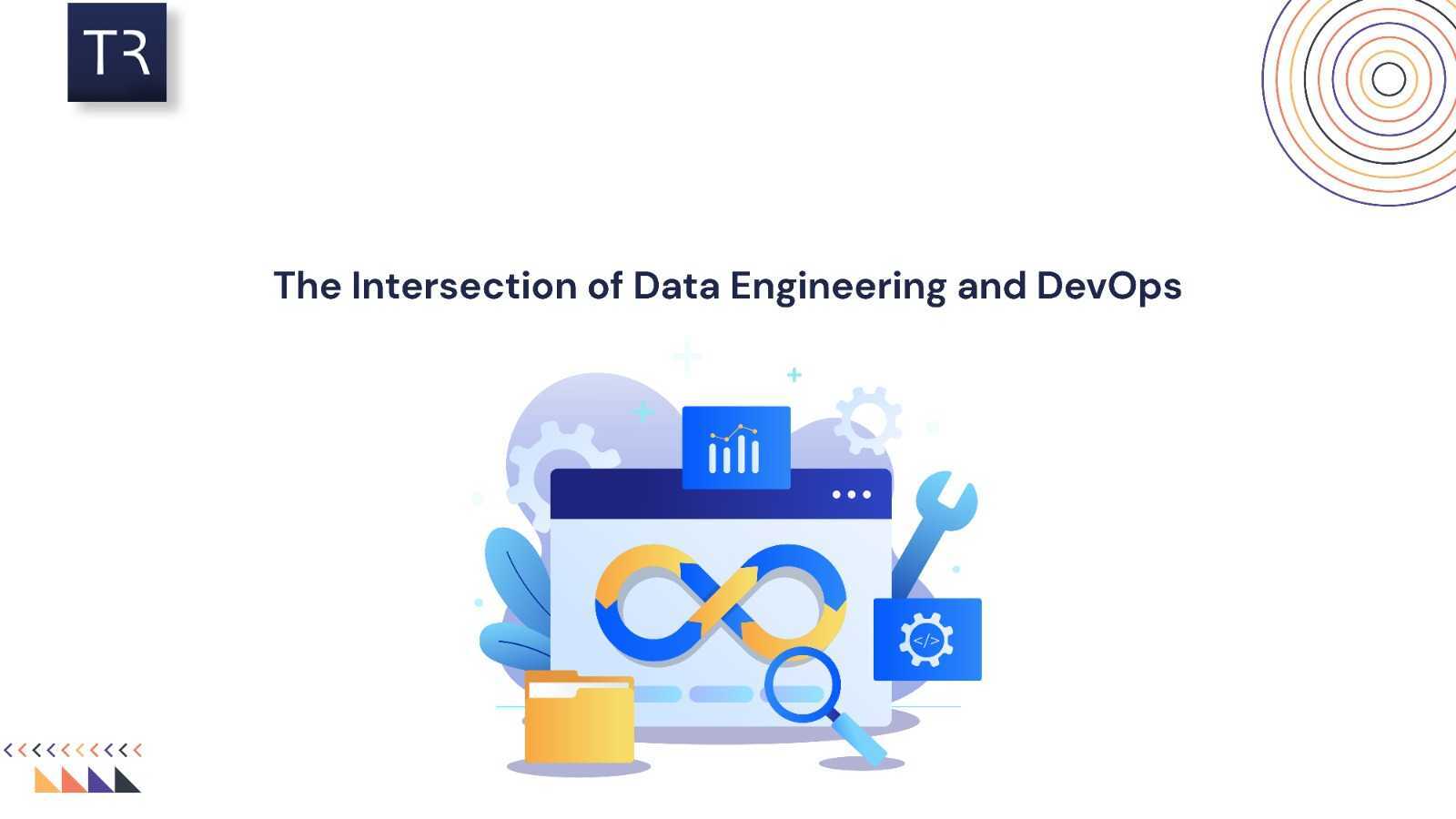Physical address:
573 Hutchinson Ln, Lewisville, TX 75077, USA.
In today’s fast-paced digital era, the lines between different technical disciplines are increasingly blurring. One fascinating intersection gaining traction is between Data Engineering and DevOps. While data engineering focuses on creating efficient systems for collecting, storing, and analyzing data, DevOps emphasizes seamless collaboration between development and operations teams to deliver high-quality software faster and more reliably.
What is Data Engineering?
Data engineering focuses on designing, building, and maintaining systems that collect, store, and analyze data. It involves creating data pipelines, ensuring data quality, and making data accessible for analytics and decision-making.
Understanding DevOps
DevOps combines development (Dev) and operations (Ops) to streamline software development and deployment. It emphasizes automation, collaboration, and continuous delivery to enhance the efficiency of software lifecycle management.
The Growing Need for Collaboration
The Role of Data in Modern Businesses
Data is the backbone of decision-making in businesses today. From predicting customer behavior to optimizing supply chains, organizations rely on accurate, real-time data to stay competitive.
DevOps Driving Efficiency in Engineering Teams
DevOps practices, such as CI/CD (Continuous Integration/Continuous Deployment), enable teams to develop, test, and release software more efficiently, which directly benefits data engineering workflows.
Key Overlaps Between Data Engineering and DevOps
Infrastructure as Code in Data Pipelines
Using tools like Terraform or Ansible, teams can define infrastructure for data pipelines as code, ensuring consistency and ease of replication.
Monitoring and Logging in Data Systems
DevOps emphasizes robust monitoring and logging, which aligns with the need for tracking data pipeline performance and troubleshooting issues.
Automation and Scalability
Both fields rely heavily on automation to handle repetitive tasks and ensure scalability for growing workloads.
Challenges in Combining Data Engineering with DevOps
Handling Large Data Volumes
Managing vast amounts of data in a DevOps-driven environment can be challenging, requiring advanced tools and strategies for scalability.
Aligning Objectives Across Teams
Data engineering and DevOps teams often have different priorities, necessitating clear communication and shared goals.
Ensuring Security and Compliance
Handling sensitive data requires stringent security measures and compliance with regulations, which may differ from typical DevOps practices.
Related links you may find interesting
Best Practices for Successful Integration
Emphasizing Cross-Functional Training
Encouraging team members to learn the basics of both disciplines fosters collaboration and reduces knowledge gaps.
Building Modular Pipelines
Adopting a modular approach allows teams to isolate and manage components independently, increasing flexibility.
Leveraging DevOps Tools for Data Engineering
Tools like Jenkins, Docker, and Kubernetes can significantly enhance the efficiency of data engineering processes.
Tools That Bridge the Gap
Jenkins for Data Pipelines
Jenkins provides automation for building, testing, and deploying data pipelines, ensuring consistency.
Kubernetes for Orchestrating Data Workloads
Kubernetes excels at managing containerized workloads, making it ideal for scaling data engineering tasks.
Apache Airflow with CI/CD Integration
Apache Airflow supports workflow automation and integrates seamlessly with CI/CD pipelines.
Benefits of Merging Data Engineering with DevOps
Improved Data Pipeline Reliability
Collaboration reduces the chances of failures, ensuring pipelines are robust and resilient.
Faster Deployment of Data Projects
Integrated workflows enable quicker deployment, saving time and resources.
Enhanced Team Collaboration
Breaking down silos fosters a culture of collaboration, leading to better outcomes.
Case Studies in Action
How Netflix Blends DevOps with Data Engineering
Netflix uses a combination of data engineering and DevOps to manage its extensive content delivery network and personalized recommendations.
Airbnb’s Scalable Data Pipeline Strategy
Airbnb relies on a seamless integration of data engineering and DevOps for real-time analytics and decision-making.
Spotify’s Integration Success
Spotify employs DevOps practices to maintain a reliable data pipeline for delivering music recommendations to millions.
The Future of Data Engineering and DevOps
The Rise of DataOps
DataOps, a blend of DevOps and data engineering principles, focuses on agile and automated data management practices.
AI and Automation in Data Engineering
Artificial intelligence is revolutionizing data engineering by automating complex tasks and improving efficiency.
Evolving Roles of Data Engineers and DevOps Specialists
As the fields merge, professionals will need to acquire hybrid skills, blending data expertise with DevOps knowledge.
Conclusion
The intersection of data engineering and DevOps offers immense potential for businesses seeking to maximize efficiency and innovation. By embracing collaboration, adopting best practices, and leveraging the right tools, organizations can unlock new levels of productivity and data-driven decision-making.
FAQs
- What are the main goals of intersection of data engineering with DevOps?
To enhance efficiency, ensure reliability, and promote collaboration across teams. - How does DevOps improve the reliability of data systems?
By introducing automation, monitoring, and robust testing practices. - Can small organizations benefit from integrating DevOps and data engineering?
Yes, it streamlines workflows and enhances scalability regardless of organizational size. - What are the risks of not adopting a collaborative approach?
Lack of integration can lead to inefficiencies, data pipeline failures, and slower project delivery. - Which industries can benefit the most from this intersection?
Industries like finance, healthcare, e-commerce, and entertainment stand to gain significantly.


